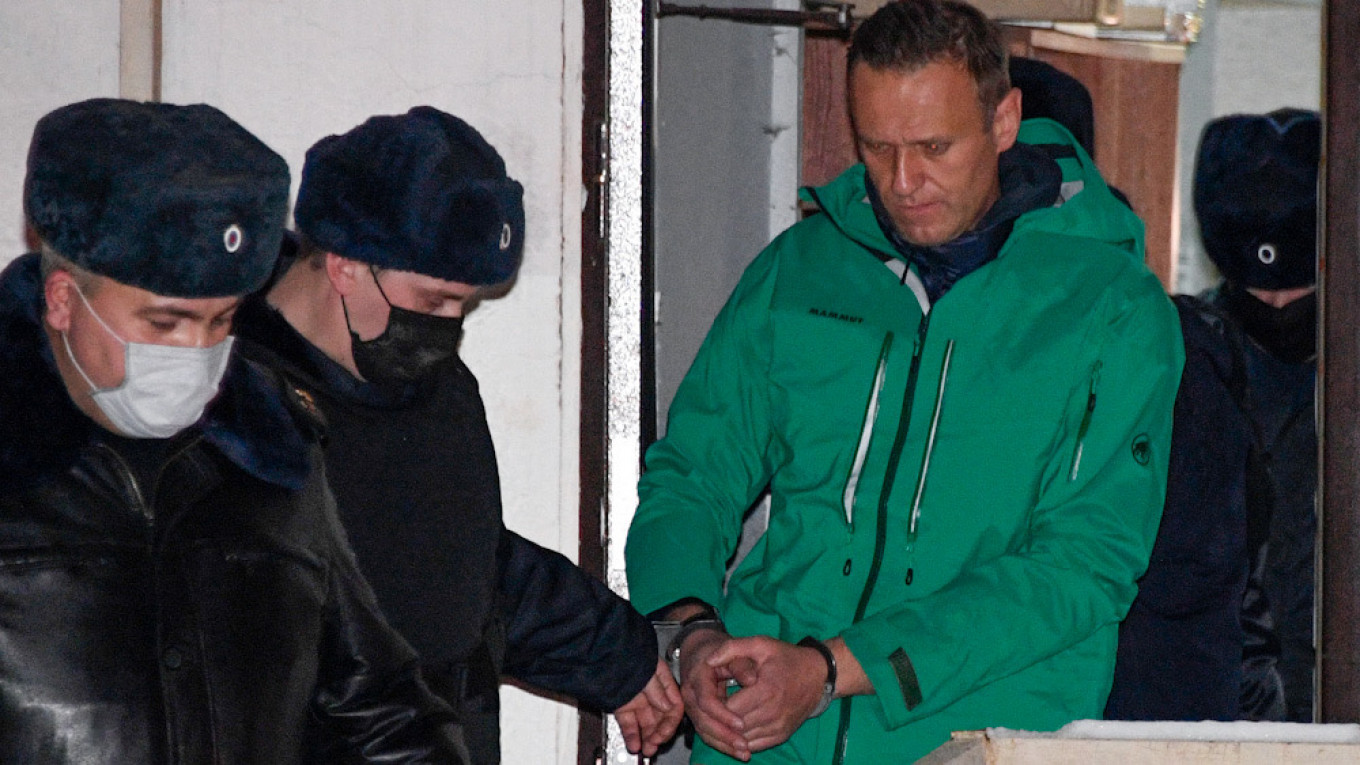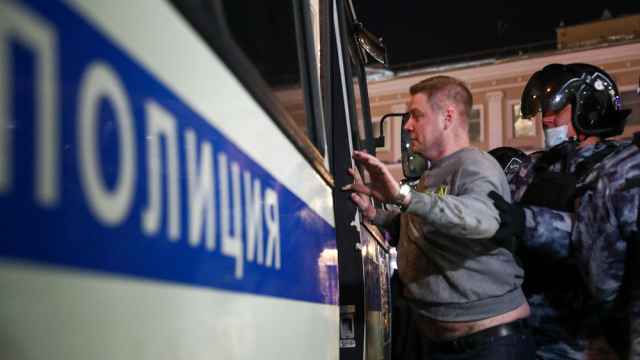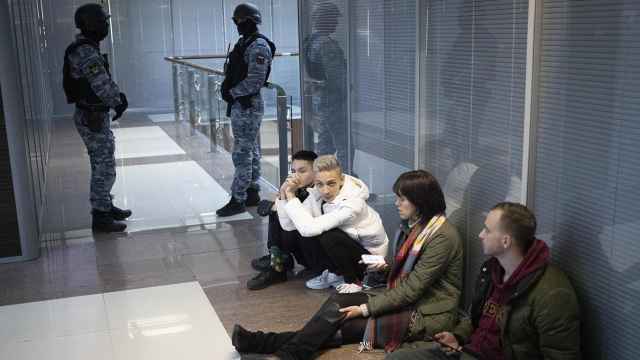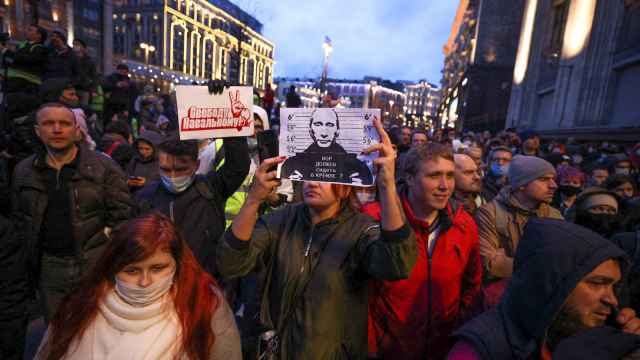A Moscow court has upheld opposition leader Alexei Navalny’s 30-day pretrial detention on charges of violating probation terms from a previous conviction he says was politically motivated, the Mediazona news website reported Thursday.
Navalny was placed in custody until Feb. 15 upon his return from Germany, where he spent months recovering from Novichok nerve agent poisoning that he blames on the Kremlin. Two days before his probation in a 2014 fraud case expired on Dec. 30, Russia’s prison service threatened to convert Navalny’s suspended sentence to a real prison term for failing to appear before probation officers while he was in Berlin.
Moscow district court judge Musa Musayev ruled Thursday to dismiss Navalny’s appeal against his 30-day placement in the Matrosskaya Tishina detention center, according to Mediazona.
Appearing at the hearing via videolink from jail, Navalny called the latest case against him a "demonstration of lawlessness."
Navalny now faces up to three and a half years in prison at a court hearing next Tuesday into his 2014 Yves Rocher fraud sentence. Europe’s human rights court ruled in 2017 that Navalny and his brother Oleg had been arbitrarily convicted of fraud and money laundering in the Yves Rocher case.
Investigators last month also opened a criminal probe alleging that Navalny had misappropriated nearly $5 million of donations to his anti-corruption foundation. That charge carries a prison sentence of up to 10 years.
Navalny, 44, published a viral video investigation into President Vladimir Putin’s alleged billion-dollar palace and called for protests after being jailed on Jan. 18.
Tens of thousands of Russians took to the streets Saturday, with a record-breaking 4,000 protesters detained across more than 120 towns and cities.
Navalny’s allies, several of whom have been arrested and charged in connection with the demonstrations, plan to stage a second round of rallies this Sunday.
A Message from The Moscow Times:
Dear readers,
We are facing unprecedented challenges. Russia's Prosecutor General's Office has designated The Moscow Times as an "undesirable" organization, criminalizing our work and putting our staff at risk of prosecution. This follows our earlier unjust labeling as a "foreign agent."
These actions are direct attempts to silence independent journalism in Russia. The authorities claim our work "discredits the decisions of the Russian leadership." We see things differently: we strive to provide accurate, unbiased reporting on Russia.
We, the journalists of The Moscow Times, refuse to be silenced. But to continue our work, we need your help.
Your support, no matter how small, makes a world of difference. If you can, please support us monthly starting from just $2. It's quick to set up, and every contribution makes a significant impact.
By supporting The Moscow Times, you're defending open, independent journalism in the face of repression. Thank you for standing with us.
Remind me later.






